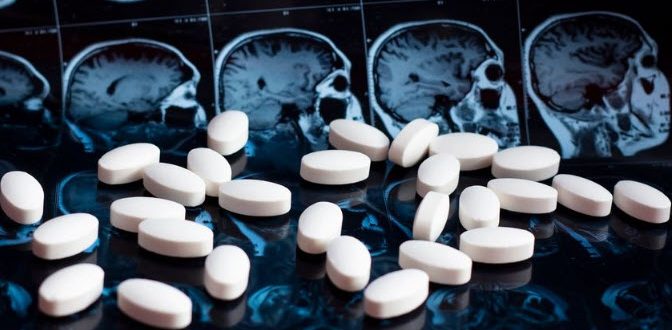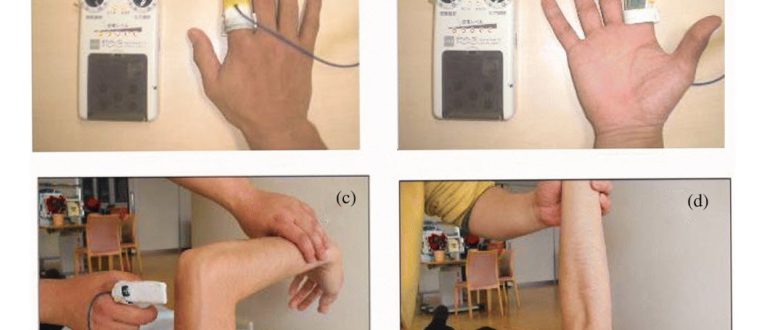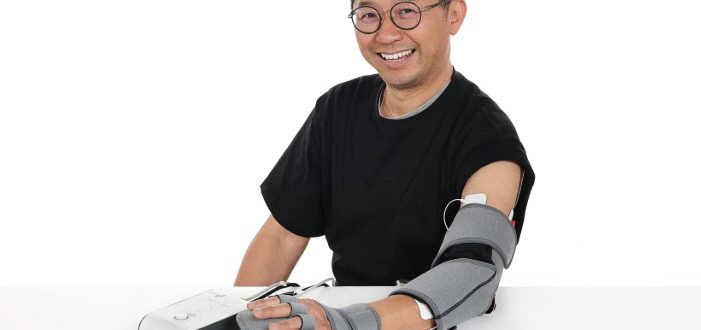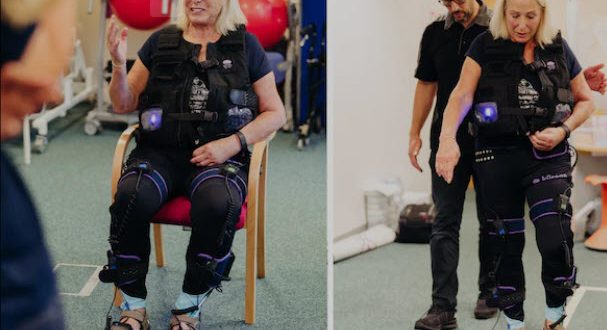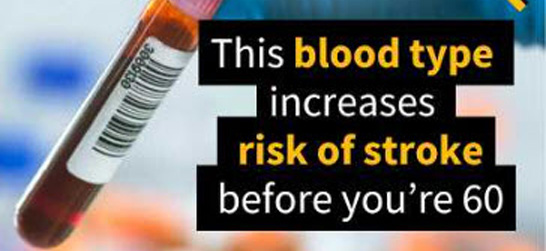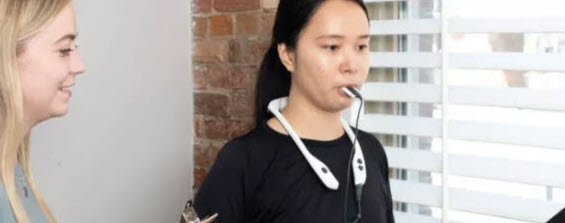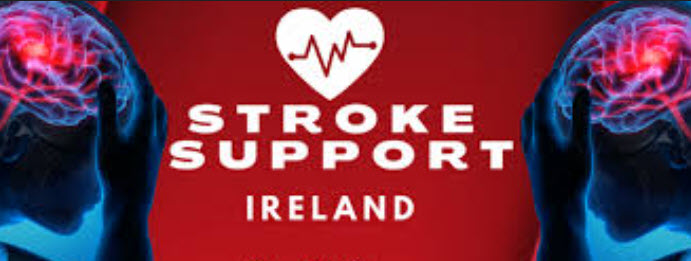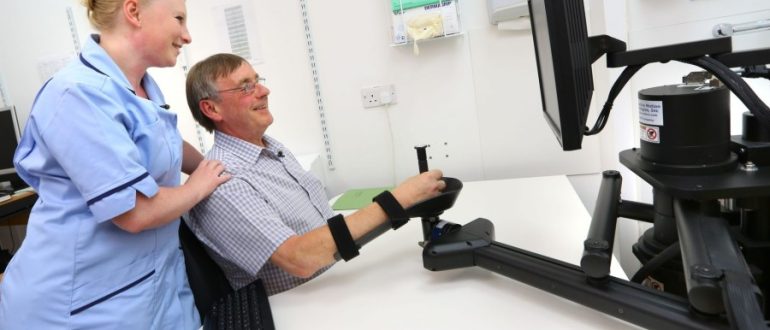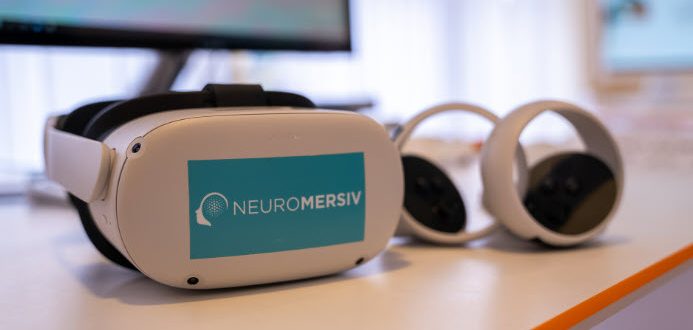The integration of Neuromersiv’s ‘Ulysses’ system represents a significant advancement in the tech-for-stroke space, offering a dedicated VR solution for upper-limb. The system’s design and therapeutic approach align with core neuroscientific principles, particularly concerning task-specific training, repetition, and motivation…
The Neuromersiv ‘Ulysses’ system is designed to be used by stroke survivors in a structured, repetitive, and highly engaging manner, ideally with guidance from a trained clinician. The therapy focuses on functional tasks in a virtual environment to promote neuroplasticity.
The process begins with a therapist assessing your specific needs and upper limb impairment. This determines the appropriate rehabilitation goals and how the system will be integrated into your overall therapy plan.
You then put on a wireless VR headset, such as a Meta Quest 2. The system uses the headset’s built-in hand-tracking technology, which means you don’t need to hold bulky controllers. Then, a virtual assistant within the software guides you through every step, making the process accessible even for users with no prior VR experience.
The core of the therapy involves engaging in simulated ADLs within a realistic virtual environment. The tasks are designed to be challenging but fairly fun, like washing dishes, sorting cutlery, and organizing cupboards and engaging in personal care activities. The tasks are all gamified with reward systems that encourage you to keep going and achieve your goals, providing a motivational boost that is often lacking in traditional therapy.
The system can track your movements in real-time and some users can also incorporate haptic gloves, to provide sensory feedback and assist with muscle activation. For survivors with more severe impairment, the system can be combined with a sleeve containing FES electrodes. The FES helps activate and strengthen muscles you can’t move voluntarily. For example, if you’re trying to grasp a virtual object but can’t, the FES can assist the movement, creating a feedback loop that helps the brain form new neural pathways.
The therapist can use a web-based dashboard to track your progress over sessions, which allows them to monitor your performance and adjust the therapy plan to best suit your needs. The system also allows clinicians to livestream your virtual reality experience to a phone or tablet. This enables them to provide remote assistance and guidance during home-based therapy sessions. Sessions are typically repetitive and intensive to maximise their effect on plasticity. For example, a pilot study used 25 sessions of 45 minutes over several weeks. If you’re interested in using the Ulysses system, the best first step would be to talk to your OT or physiotherapist. They can help determine if this technology is suitable for your specific needs and rehabilitation goals.
The Ulysses system is now commercially available in both Australia and the UK, following registration as a Class 1 software medical device with the UK’s Medicines and Healthcare products Regulatory Agency (MHRA). Neuromersiv has adopted a multi-tiered commercialisation strategy, focusing primarily on institutional sales to rehabilitation clinics and hospitals. This approach facilitates broader access through established healthcare providers, leveraging clinical oversight and integration into existing therapy programs.
Neuromersiv also offers access directly to individual end-users (B2C), a development with significant implications for home-based neurorehabilitation. The company’s co-founders have indicated a commitment to affordability, offering flexible monthly leasing options alongside direct purchase to make the system more accessible. However, specific, publicly listed costs for individual purchase or leasing are not readily available online and require direct contact with the company for a quote. This pricing model requires stroke survivors and caregivers to actively engage with the company to understand the financial implications for home-based use.


